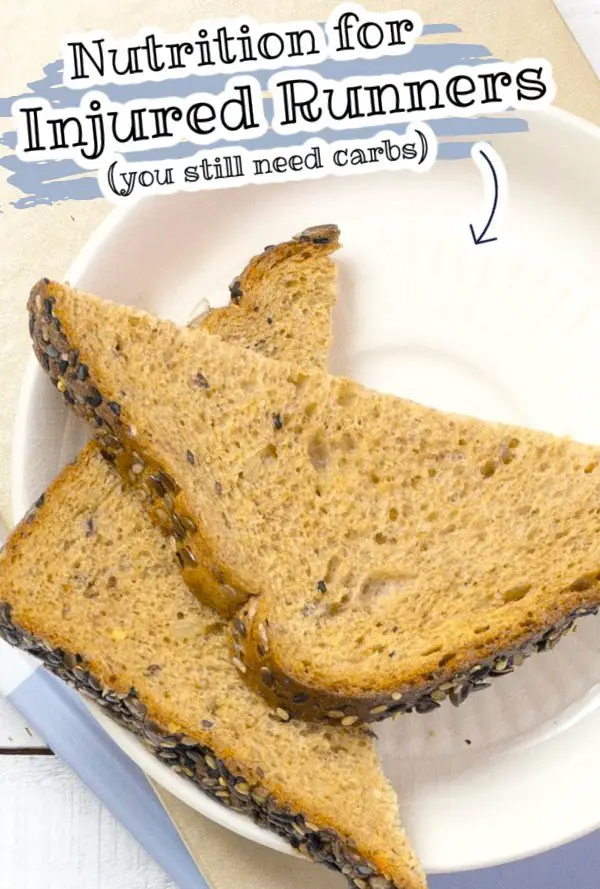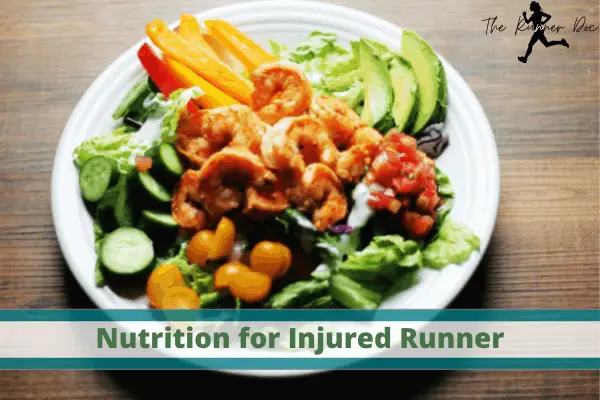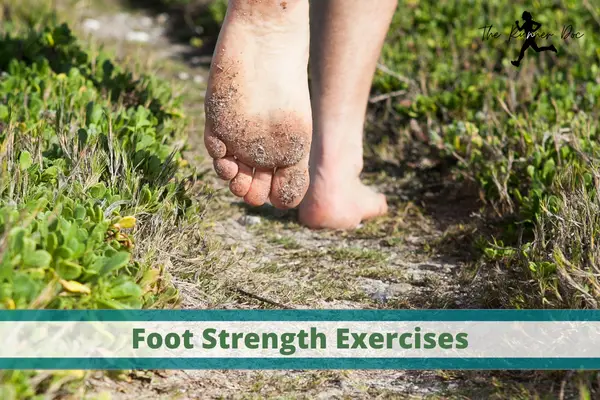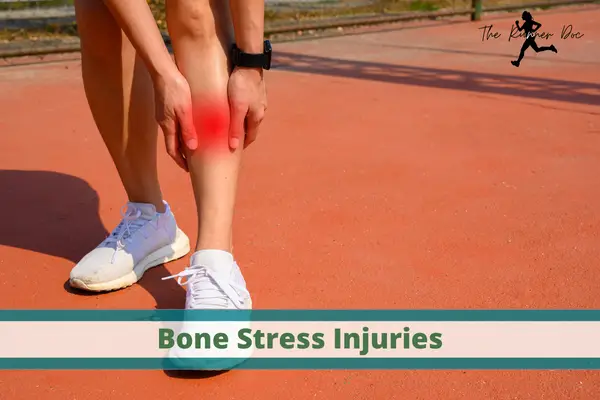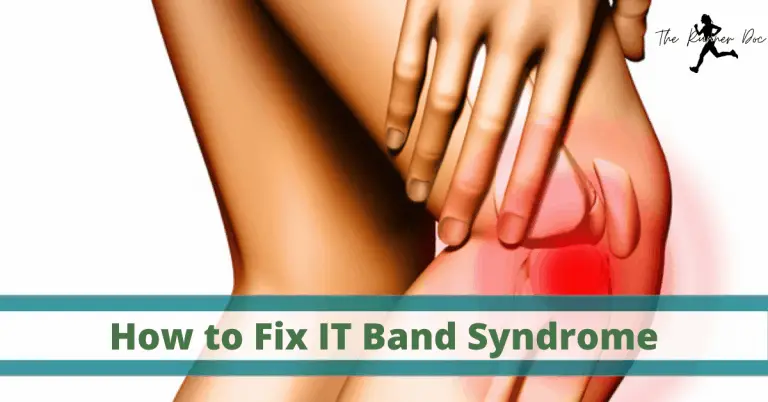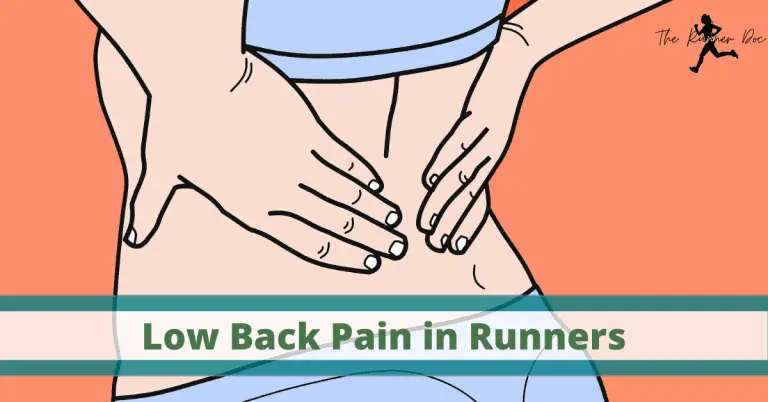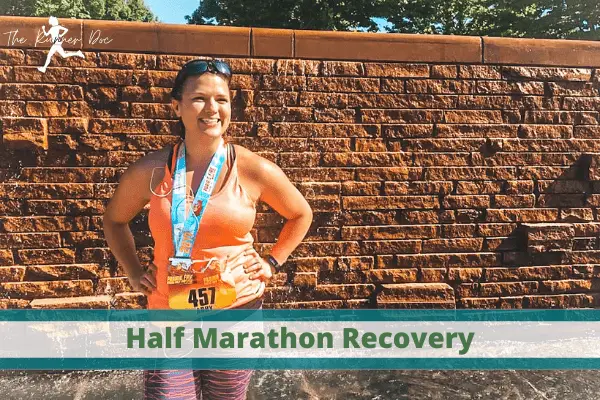How to Eat When You are an Injured Runner
Nutrition Strategies for Injured Runners
Preventing and treating injuries for runners is what this blog is all about. But there is another side to the spectrum that I don’t usually touch on since it isn’t an area that I’m an expert in, nutrition. Nutrition and knowing what to eat when you are injured is a huge part of recovery. Just because you are injured doesn’t mean you shouldn’t still be dialing in your nutrition to help support your efforts to return to running quickly as possible!
Today I have a great guest post for you from Amy Goblirsch, Registered Dietitian. On Instagram, she is known as The Running Dietitian, where she shares information for runners to keep them fueled properly and running at their optimum levels without counting or restricting any foods!
Can nutrition help you recover faster after an injury?
If you are dealing with an injury and are sidelined from running, you are probably on Google looking for all the quick fixes. For most injuries, there is no quick fix. Even if there isn’t a quick fix, nutrition can allow your body the tools it needs to recover from the injury.
Nutrition can play a critical role in your body’s ability to recover.
Many runners initially think when they become injured that “I’m not running or burning as many calories; I need to eat less”. A few years ago, I managed to develop a stress fracture during a marathon. I initially thought the same, that I wasn’t running, walking, or really do much else and I would need to eat less. After my first day using crutches with a boot – I realized pretty quick that my body seemed to be working harder than during marathon training.
Even though you may not be logging as many miles, restricting calories can slow down the recovery process. Depending on the type and severity of the injury your energy (calorie) needs could increase.
What Nutrients Do Runners Need During Injury Recovery?
Recovering faster is always the goal for any injured runner. Here are some key nutrients that will be important for you to make sure you are getting in addition to meeting your normal energy needs.
Protein – If the injured body part is immobilized there is a greater chance of having a decline in strength and muscle mass. Eating enough protein, which is as much as you would eat during training, can minimize the loss.
Sources – meat, beans, tofu, edamame, nuts, seeds, and grains.
Leucine – This branch chain amino acid (BCAA) has been nicknamed the anabolic trigger due to its ability to stimulate muscle protein synthesis compared to other amino acids. In other words: it helps your body build muscle.
Sources – chickpeas, soybeans/soy-based products, eggs, salmon, chicken, and beef.
Calcium & Vitamin D – Calcium is essential for bone building and maintenance, vitamin d on the other hand helps your body absorb calcium. These two nutrients are crucial if your injury is bone-related.
Sources of Calcium – dairy products, dark leafy green vegetables, dried peas, and beans.

Sources of Vitamin D – fatty fish ( such as salmon and tuna), cheese, eggs, fortified products (such as milk, yogurt, and breakfast cereals).
Omega-3 Fatty Acids – Inflammation is likely to be found in the injured area. Help reduce the inflammation and speed up recovery by introducing more sources of Omega-3 Fatty Acids.
Sources – Fish and other seafood, nuts, seeds, broccoli, brussels sprouts, spinach, and fortified dairy products (such as eggs, yogurt, and milk).
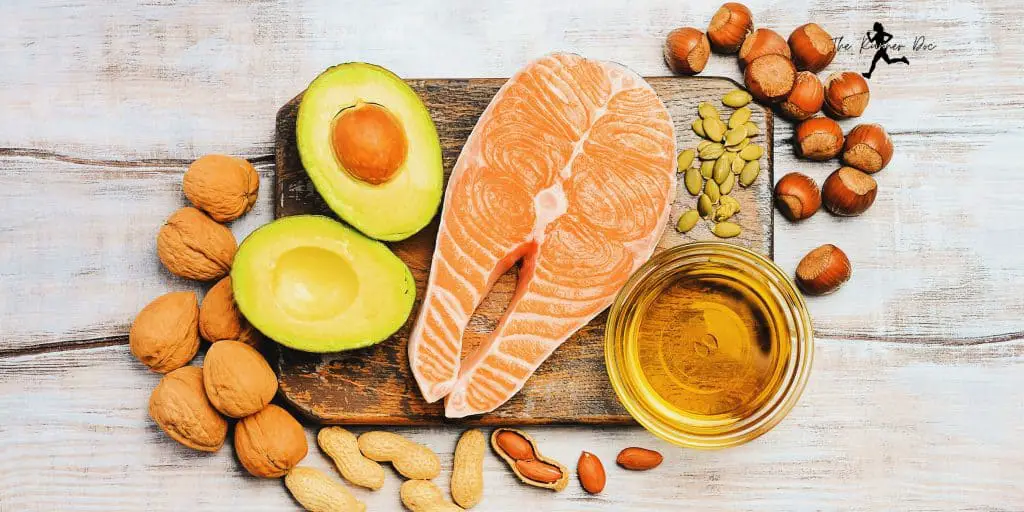
Final thoughts on Nutrition for Injury Recovery in Runners
Injury recovery doesn’t happen overnight.
Although these nutrients and meeting total energy needs can help your body recover from the injury, it is important to give your body the rest that it needs. Focus on recovery and you will be back to hitting your favorite running path in no time.
Amy Goblirsch, Registered Dietitian
You can find Amy on Instagram for daily tips and advice to keep your running fueled!
Looking for more individualized help to take your running to the next level? Apply for Amy’s coaching program today!
Related articles to Nutrtion for Injured Runners
- The Most Common Training Errors for Runners
- Built Bar Review for Runners
- How Does Cross-Training Prevent Injuries in Runners?
AFFILIATE DISCLOSURE
As an Amazon Associate, I earn from qualifying purchases. This post may contain affiliate links. If you use these links to buy something we may earn a commission. The Site may contain links to affiliate websites, and we receive an affiliate commission for any purchases made by you on the affiliate website using such links.
